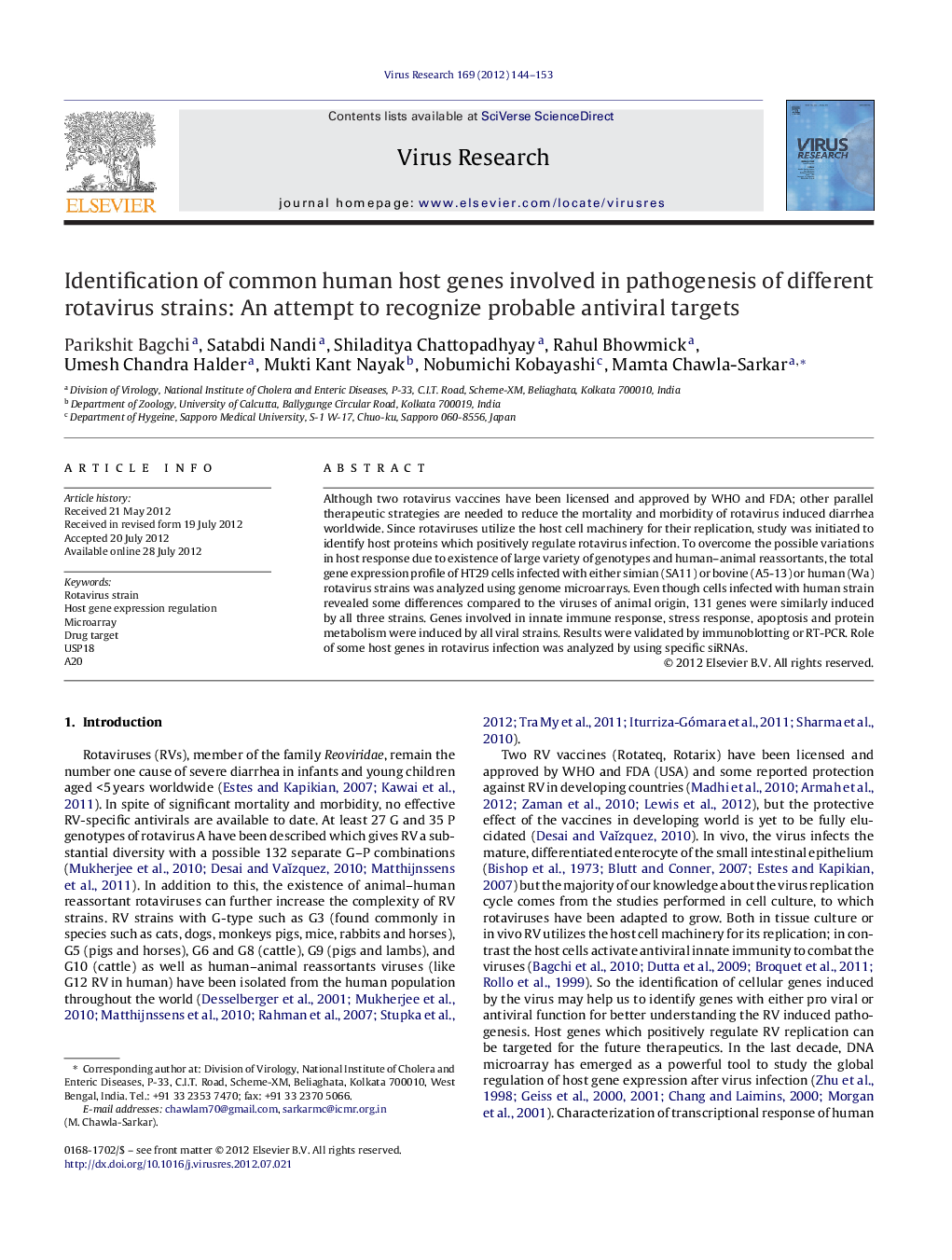| Article ID | Journal | Published Year | Pages | File Type |
|---|---|---|---|---|
| 6143115 | Virus Research | 2012 | 10 Pages |
Although two rotavirus vaccines have been licensed and approved by WHO and FDA; other parallel therapeutic strategies are needed to reduce the mortality and morbidity of rotavirus induced diarrhea worldwide. Since rotaviruses utilize the host cell machinery for their replication, study was initiated to identify host proteins which positively regulate rotavirus infection. To overcome the possible variations in host response due to existence of large variety of genotypes and human-animal reassortants, the total gene expression profile of HT29 cells infected with either simian (SA11) or bovine (A5-13) or human (Wa) rotavirus strains was analyzed using genome microarrays. Even though cells infected with human strain revealed some differences compared to the viruses of animal origin, 131 genes were similarly induced by all three strains. Genes involved in innate immune response, stress response, apoptosis and protein metabolism were induced by all viral strains. Results were validated by immunoblotting or RT-PCR. Role of some host genes in rotavirus infection was analyzed by using specific siRNAs.
⺠The host cell response after infection with human or animal rotaviruses differs. ⺠Microarray profiles of HT29 cells infected with human and animal rotaviruses were compared. ⺠131 genes were induced equally by human and animal rotavirus strains and involved mainly genes controlling the innate immune response and apoptosis. ⺠Genes encoding A20 and USP18 were activated by RV infection and promoted their replication. ⺠Thus they can be considered as potential targets for strain independent antirotaviral therapy.
